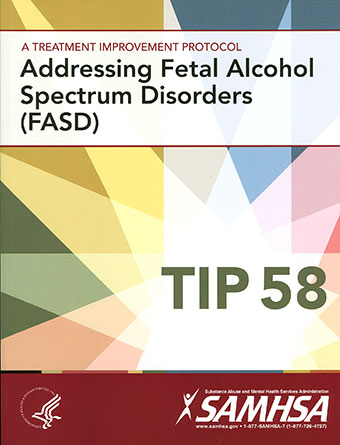Fetal Alcohol Spectrum Disorder (FASD) is an umbrella term used to describe the range of disabilities and diagnoses that result from drinking alcohol during pregnancy. The impact and effects of FASD vary. Specific birth defects and the degree of the disability can depend on how much alcohol was drunk, how often and when during the pregnancy; they can also depend on the state of health of the pregnant woman. No amount or type of alcohol during pregnancy is considered safe.
 It is estimated that in Canada, more than 3,000 babies a year are born with FASD, and about 300,000 people are currently living with it. Research suggests that the occurrence of FASD is significantly greater in Aboriginal populations, and in rural, remote and northern communities. Prevention, identification and intervention efforts are key to improving this situation. A large number of pregnancies in Canada are unplanned, meaning that a large number of women in the early stages of their pregnancies - not knowing they are pregnant - may use alcohol and unknowingly cause damage.
It is estimated that in Canada, more than 3,000 babies a year are born with FASD, and about 300,000 people are currently living with it. Research suggests that the occurrence of FASD is significantly greater in Aboriginal populations, and in rural, remote and northern communities. Prevention, identification and intervention efforts are key to improving this situation. A large number of pregnancies in Canada are unplanned, meaning that a large number of women in the early stages of their pregnancies - not knowing they are pregnant - may use alcohol and unknowingly cause damage.
Prenatal exposure to alcohol can cause: learning disabilities; hyperactivity; attention or memory deficits; inability to manage anger; poor judgment; difficulties with problem solving; and delayed growth. It can also cause such physical disabilities as: heart defects, cleft lip and palate, spina bifida, cysts or cavities in the brain, vision problems, kidney problems, liver defects, hernia, seizure disorders, and skeletal problems
The effects are permanent. Many people with FASD need a lifetime of extra health care, education and social services. Often, individuals have lifelong problems with day-to-day living and are likely to experience: early school drop out; alcohol and drug use; problems securing and maintaining employment; homelessness; trouble with the law and mental health problems.
Useful Resources
Fetal Alcohol Spectrum Disorders Center for Excellence: Fact sheets and Brochures
Fetal Alcohol Spectrum Disorders and Juvenile Justice: How Professionals Can Make a Difference

